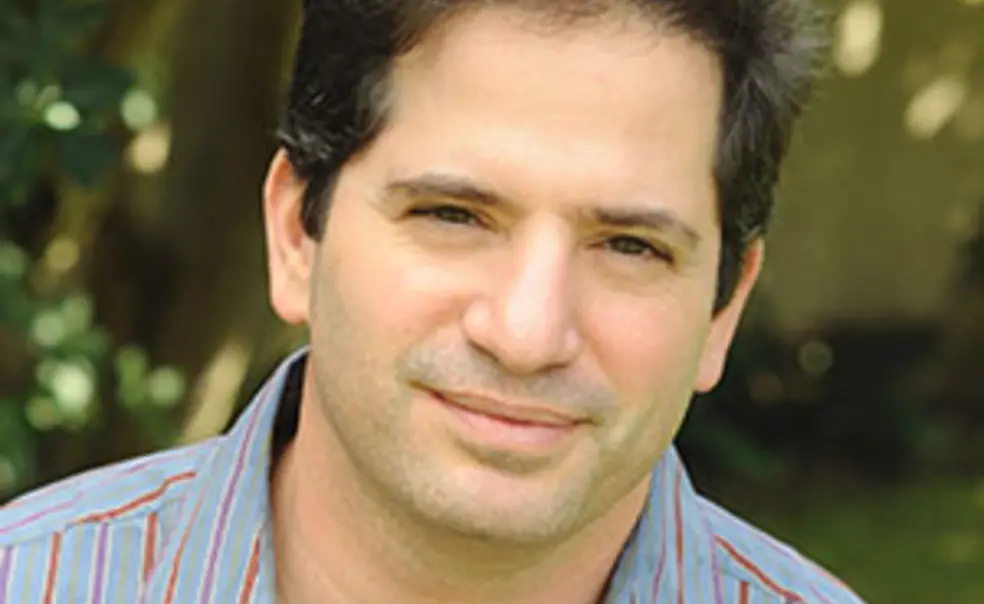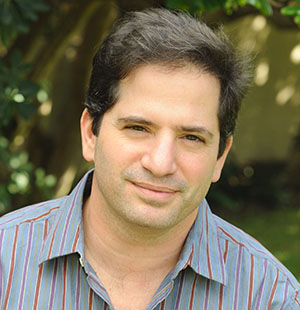David Zabel ’88, Television Writer, Producer, and Co-Creator of ‘Mercy Street’
On Dec. 7, in front of a full-house audience of star-struck undergraduates and artsy locals, David Zabel ’88 spoke from a stage that supported the early days of his career — literally. It was at 185 Nassau, the longtime home of the arts at Princeton, that he spent hours and hours at late-night rehearsals and intensive writing workshops.
Once he discovered the theater at Princeton, Zabel said, his other interests (history, for example) quietly faded away. It snapped his future into focus.
“I was interested in a bunch of different things,” he said. “It was just theater that embraced me — earliest and most fully.”
Zabel is now an award-winning television writer, producer, and director. He wrote more than 45 episodes of ER, the medical series on NBC. He was the showrunner of ER for the program’s final five years, and he was also the showrunner and executive producer of Detroit 1-8-7 and Betrayal (both on ABC).
Zabel returned to 185 Nassau not as an actor, as he’d been as a student, but as the co-creator and executive producer of a new six-part Civil War-era television series on PBS that premieres this January: Mercy Street. The first episode will air Jan. 17 at 10 p.m. (after Downton Abbey). Mercy Street, PBS’ first American-made drama in over a decade, is based on real events.
After a special preview screening of the show and a presentation of a short video about Zabel’s work, produced by the Lewis Center of the Arts, Zabel shared the stage with Mercy Street cast members Josh Radnor (How I Met Your Mother), McKinley Belcher III, and Tara Summers, and historians James McPherson and Audrey P. Davis.
While Zabel’s Princeton theater experience began with acting, he also developed an interest in being part of other roles in theater production. “Even then, I was always writing, and helping out with the multiple roles that are involved in a production,” Zabel recalled. He said that his foundation in the theater at Princeton has made him a more flexible, resilient, and adaptable television writer and producer.
“It’s not just about writing scripts,” he said. “It’s about a lot of different things. And so that experience of being in a dark, little residential college theater and trying to get the set built and get the costumes and get the props and do all of that, it seems — it’s very challenging, but for me, it’s really paid off. Because I feel like on a different level, I’m doing the same thing now that I was doing then!”
Zabel said that he’s especially interested in creating narratives that have a diversity and multiplicity of perspectives. Mercy Street, for example, has no fewer than 18 regular characters who appear in all six episodes of the series. The show weaves several perspectives into the narrative; as Zabel puts it, there are many “ways into the story.”
Zabel’s trip back to Princeton, he said, was a bit “wistful.” He also had a chance to see his niece, Anna Zabel ’19. She’s a freshman at the University who is following her uncle’s path — she’s just as engaged in the theater community as Zabel was in his first months at Princeton.













No responses yet